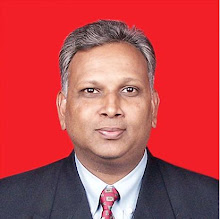Comment: This also applies to
Five rings, one party
Posted online: Friday, August 08, 2008 at 0108 hrs ![]() Print
Print ![]() Email
Email
The Indian Express
: According to an old story, when Empress Catherine the Great of Russia took foreign ambassadors to visit the devastated Crimea, her general, Grigori Potemkin, put up fake villages along the path to present a false front of prosperity. Ever since, authoritarian regimes everywhere have found it difficult to resist the lure of building Potemkin villages. As the eyes of the global village turn to
In some ways, of course, the question is unfair. Urban
So, as we marvel at the architectural wonders of the new
Olympics 2008:
Reuters
Posted online: Friday, August 08, 2008 at 1923 hrs ![]() Print
Print ![]() Email
Email
|
| |
| |
| |
Drums thundered, strobe lights flickered and 14,000 performers poured through the Bird's Nest stadium in a dazzling extravaganza that offered up a vision of global harmony in line with the Games' motto 'One World One Dream'.
Around 80 world leaders watched the show which celebrated imperial
"Friends have come from afar, how happy we are," an army of 2,008 drummers chanted, quoting the celebrated sage Confucius.
Friday's ceremony caps seven years of work that has reshaped
However, the Olympic spotlight has also cast a harsh glare on the vast Asian nation, bringing the unrest in its Tibetan region to a wide audience and showing that
Deafening firecrackers launched Friday's ceremony before a series of giant fireworks in the form of footsteps were set off, blasting above the heart of the capital, crossing Tiananmen Square as they progressed to the steel-latticed Bird's Nest.
The authorities opened the vast square, scene of a student uprising in 1989, to let people watch the pyrotechnics, prompting thousands of delighted
RECORD COST
The Games carry a $43 billion price tag, dwarfing the previous record of $15 billion splashed out by
National pride at the transformation of
The Games were due to be formally opened at around 11 p.m. by the president of the International Olympic Committee, Jacques Rogge. They run until Aug. 24, with 10,500 athletes from a record 204 nations chasing 302 gold medals in 28 sports.
Locals expect Chinese athletes to underscore their country's newfound strength by heading the medals table for the first time.
Friday's show, directed by local film maker Zhang Yimou, reached its climax before the athletes' parade, when a gigantic sphere representing the earth rose from the floor of the stadium, which filled with twinkling starlight.
Signs flashed up warning of the dangers of global warming.
The world's most populous nation has thus far resisted calls to curb its carbon emissions as it concentrates on growth, and its promise to stage a 'Green Games' has been belied by the hazy pollution which has clogged Beijing in recent days.
The careful choreography of the ceremony extended well beyond the stadium and 100,000 police fanned out to prevent attacks and protests, while dissidents have been kept out of sight.
Though US President George W Bush said he was coming for sport not politics, he reiterated on Friday 'our belief that all people should have the freedom to say what they think and worship as they choose'.
CALL FOR TRUCE
UN Secretary-General Ban Ki-moon issued a video appeal at the ceremony calling on warring nations to honour a traditional truce during the Games. "I call on all those engaged in hostilities to respect it."
Unfortunately for the Olympic ideal of global harmony, the two
The best-known face of Chinese sport, 7ft 6in NBA basketball player Yao Ming, will lead his team at the ceremony.
US athletes chose former Sudanese refugee Lopez Lomong to carry their flag around the track. Lomong was a victim of government-sponsored Arab militias who fled
The Games are centred in
The sporting action gets into top gear on Saturday with competition underway in 18 disciplines, including swimming and gymnastics, and seven gold medals up for grabs.
Among the early competitors is
Record crowds are expected to cheer on the athletes, with 7 million tickets sold guaranteeing capacity audiences -- a stark contrast to
But as in 2004, the build up to the Beijing Games has been marred by drug taking. A number of athletes have failed tests in the weeks leading up to the Olympics and officials have promised about 4,500 doping checks in Beijing to root out the cheats.


No comments:
Post a Comment